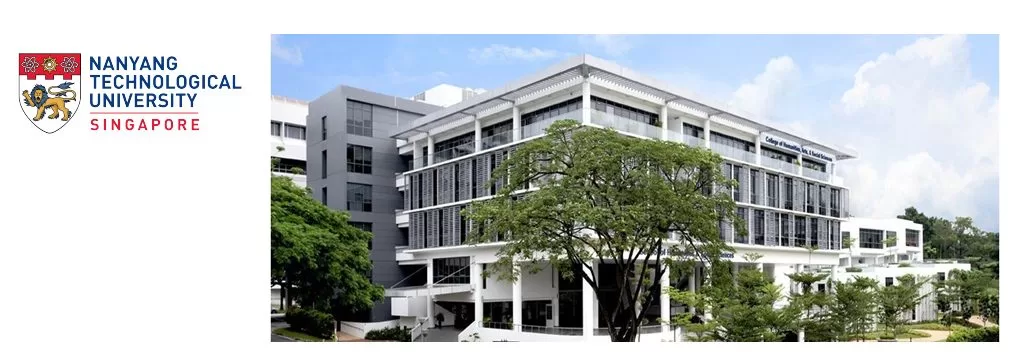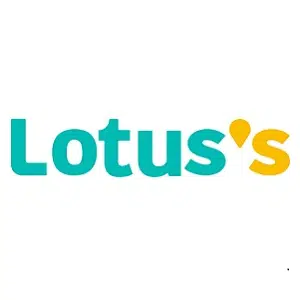Education
NTU Increases Places in Computing Courses to Meet Demand, and Launches New Undergraduate Offerings in Emerging Fields

Nanyang Technological University, Singapore (NTU Singapore) is increasing the number of places in the hot fields of computing, data analytics and cybersecurity, as well as introducing new undergraduate offerings in emerging fields with high demand.
To keep up with soaring industry demand for graduates with skills in computing, NTU plans to increase its intake for computing-related undergraduate programmes to 675 places in the new academic year. This is a 50 per cent increase compared to 2015, the year NTU’s intake for these programmes started increasing steadily. These computing graduates are expected to take on some of the top five emerging jobs in Singapore, including data scientists and cyber security specialists.
Professor Ling San, NTU Provost and Vice President (Academic), said, “As a leading global university, we strive to always stay ahead of the curve, seize opportunities in emerging areas, and forecast future industry demand. We can then design new programme offerings and plan our intake numbers accordingly in anticipation of this demand.
“NTU’s new offerings build on its unique interdisciplinary approach, as well as its pedagogy of equipping our students with industry experience as part of their academic programme. Taken together, students will be well prepared to face jobs of the future in a time when industry needs are rapidly changing.”
Preparing graduates for top jobs in hot fields
Following up on the highly popular Bachelor of Science in Data Science and Artificial Intelligence introduced last year, NTU will be offering a new Double Major in Mathematical and Computer Sciences.
Aimed at nurturing much needed technological leaders and entrepreneurs who push the frontiers of new digital technologies and scientific research, the programme delves into fast developing areas such as financial technology, cybersecurity and data analytics.
According to the latest annual salary survey by recruitment firm Robert Walters, some of the top jobs in demand for 2019 are in these areas, with cybersecurity to remain a major focus in the wake of recent high-profile cyberattacks in Singapore.
Targeted at high achievers, the new double major programme is offered jointly by the School of Physical and Mathematical Sciences and the School of Computer Science and Engineering.
Students enrolled in this new programme can train in at least one of four specialisation areas: theoretical computer science, cryptography and cybersecurity, data science, and financial modelling.
With the introduction of the new Double Major in Mathematical and Computer Sciences, NTU will have 10 computing-related programmes on offer in the coming new academic year, including established favourites such as Computer Engineering and Computer Science.
NTU’s other new offering, the Double Major in Biomedical Sciences and BioBusiness, rides on Singapore’s silver tsunami, which presents unique opportunities for the biomedical industry.
Graduates from this programme will not only emerge capable in biomedical sciences and biotechnology, but also well-versed in business and manufacturing operations management and industry-related regulatory matters.
The new programme fills a gap as there are no existing undergraduate or graduate programmes in biological sciences or life science programmes in Singapore that can fulfil the current industry needs.
The first of its kind in Singapore, the programme is run by the School of Biological Sciences in conjunction with the Nanyang Business School and the Copenhagen Business School (CBS). Students enrolled in this new programme will spend a semester in CBS to cover the BioBusiness component of the programme.
The foundational knowledge and skills taught in the programme will be strengthened through professional internship in various business departments at multinational pharmaceutical, biotechnology and medical technology companies and local healthcare institutions.
Another industry hungry for talent is the commodity trading sector, which is on an upturn and remains a critical growth pillar for Singapore’s economy. In 2017, the sector hit a new high of S$28 billion in local business spending, and hired more than 15,000 professionals .
The growth in the sector will see more jobs created. NTU’s new Minor in International Trading is expected to meet this demand. Currently offered to students from the Business, Engineering and Maritime Studies as a track option within the specialisation of their programmes, its upgrade to a Minor programme will open this to business and engineering students from other programmes.
Professor Ling said, “The new programmes leverage NTU’s strengths and tap on the expertise of both local and international industrial partners to offer students more options and flexibility to pursue diverse career goals. Discoveries are often made at the interface of disciplines, and the University’s strong focus on interdisciplinary learning will give students a head start when pursuing attractive careers in these sought-after fields.”
Bolstering industry-relevant experience
From this new academic year, NTU is also offering the new Co-operative Education track for its Bachelor programmes in Mathematical Sciences, Chemistry & Biological Chemistry, and Physics/Applied Physics.
The new track demonstrates the university’s greater emphasis on work-study opportunities that deepen industry exposure for its students. Students will have the opportunity to complete three mandatory internships under this new track – totalling 50 weeks – in their four years of undergraduate studies.
This combination of classroom-based education and practical work experience comes after the Applied Wealth Management track, jointly launched by NTU and DBS Bank last year.
Under the programme, students undergo two internships with DBS Bank to gain a solid understanding of wealth management, first-hand client interactions and immerse into the digital banking environment at DBS.
These two new work-study initiatives add to the 80 undergraduate degree programmes that currently require students to undergo internships or work attachments, including those in Engineering, Biological Sciences, Accountancy, Business, Accountancy & Business, Business & Computer Science, Business & Computer Engineering, Communication Studies, Art, Design & Media and Sport Science & Management.
Please see Annex A for more information on NTU’s new undergraduate offerings.
About Nanyang Technological University, Singapore
A research-intensive public university, Nanyang Technological University, Singapore (NTU Singapore) has 33,000 undergraduate and postgraduate students in the Engineering, Business, Science, Humanities, Arts, & Social Sciences, and Graduate colleges. It also has a medical school, the Lee Kong Chian School of Medicine, set up jointly with Imperial College London.
NTU is also home to world-class autonomous institutes – the National Institute of Education, S Rajaratnam School of International Studies, Earth Observatory of Singapore, and Singapore Centre for Environmental Life Sciences Engineering – and various leading research centres such as the Nanyang Environment & Water Research Institute (NEWRI) and Energy Research Institute @ NTU (ERI@N).
Ranked 12th in the world, NTU has been placed the world’s top young university for the past five years. The University’s main campus is frequently listed among the Top 15 most beautiful university campuses in the world and it has 57 Green Mark-certified (equivalent to LEED-certified) building projects comprising more than 230 buildings, of which 95% are certified Green Mark Platinum. Apart from its main campus, NTU also has a campus in Singapore’s healthcare district.
For more information, visit www.ntu.edu.sg.
Source: Nanyang Technological University, Singapore (NTU Singapore)
















































